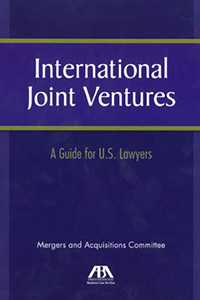CAUSE FOR DISOLUTION OF COMPANIES DUE TO NON-COMPLIANCE WITH THE HYPOTHESIS OF CONTINUING BUSINESS
By: Daniel Salazar López
The current political, social and economic crisis as a result of COVID-19 outbreak, led many companies and branches of foreign companies to enter into a cause for dissolution for losses or accumulated losses, some of them overcame the cause for dissolution while others had to be liquidated.
Until recently, in Colombia a company entered into a cause for dissolution when it had losses or accumulated losses which resulted in a decrease in equity below 50% of its subscribed capital. If this cause for dissolution was not solved within a 2 year period, the company had to be liquidated. Nevertheless, Law 2069 of 2021 (Entrepreneurship Law) eliminated this cause for dissolution and liquidation of companies in Colombia, and introduced a new cause for dissolution, the non-compliance with the hypothesis of continuing business. This is a step forward in corporate matters, since the cause of losses caused confusion, firstly taking into account that companies at the beginning of their economic activity generated high costs that prevented them from having profits at the end of the fiscal year, and therefore entering into grounds for dissolution; previously, at the closing of each fiscal year, the cause for dissolution was warned of and could be enervated within the established term, now it is imperative that the administrators of a company intervene more thoroughly on the hypothesis of continuing business.
The hypothesis of continuing business provides that provides that at the end of the fiscal year, a company must evaluate its financial statements to determine whether it has the capacity to continue operating. Therefore, when the highest corporate body analyses and evaluates the financial statements prepared under the hypothesis of continuing business, and it is observed that there is a detriment to the company’s assets and that this casts doubt on the continuity of the company’s continuing business[1], the company will be subject to dissolution.
If your company has an International Financial Reporting Standard (IFRS) accounting framework, the management under IFRS will assess the entity’s ability to continue with its businesses, which underlines the importance of preparing financial statements for the fiscal year 2020 in the current business environment. On the other hand, the companies that were subject to dissolution due to losses before the entry into force of Law 2069, such cause was suspended by virtue of Decrees 560 and 772 of 2020, while the companies are recovering in the midst of the crisis generated by COVID-19. It is worth mentioning that such suspension is extended to Law 2069 until the end of the term of such decrees, i.e., until April 2022.
In view of the foregoing, when the administrator notices in the financial statements of the fiscal year that the hypothesis of continuing business is not complied with, the administrator must summon the highest corporate body to inform in a documented manner such situation, so that the highest corporate organ of the company declares that the company has entered into dissolution grounds and therefore measures must be taken to continue with the business or to liquidate the company. It is important to highlight that when the company enters into a cause for dissolution, the administrators must abstain from carrying out new operations different from the ordinary course of business of the company. In case of non-compliance with the duty to inform the respective highest body by the administrator, the administrator shall be jointly and severally liable for the damages caused to the members of the Company or third parties. In assessing whether continuing business situation is appropriate, the management shall consider all available facts about the future, which shall cover at least, but not be limited to, the next twelve (12) months from the reporting date.
The following situations are considered as non-compliance with the continuing business hypothesis:
- Liquidity risk
- Legal claims of significant contingencies.
- Low quality condition of the company’s products or services.
- Termination of contracts with significant customer and suppliers.
- High consecutive borrowing to invest in long-term business.
- Financial losses due to failure to meet contractual payment obligations.
- Labor strikes that have a significant impact on the company´s result.
- If there are delay in the payment of liabilities with banks, payroll or dividends.
Thus, if the company has a history of profitable operations and it´s positive cash flow projections indicate appropriate access to financial resources, it can be concluded that the use of the hypothesis of continuing business is appropriate. Now, it is imperative to prepare the financial statements for the fiscal year, including the trial or periodic financial statements, and the concept issued by the accountant will become more relevant since the highest corporate body will determine the viability in the short and medium term (12 months), avoiding deterioration in the common pledge of the creditors and in the equity of the associates. If, on the contrary, there is an uncertainty in the operations of the ordinary course of business of the company, and it isn´t possible to cover it within the following twelve months, the cause of non-compliance with the hypothesis of continuing business is configured and the company must proceed with its dissolution and liquidation. The proposal of this new cause seeks to protect the contingencies derived from the state of emergency due to COVID-19.
[1] Consejo Técnico de la Contaduría Pública Radicado 2018-095, del 2 de febrero de 2018

Data Protection & Privacy
 Autor: Daniel Peña Valenzuela
Autor: Daniel Peña Valenzuela
Editorial: European Lawyer
Categoría: Data Protection, European & EU Law
Año de Edición: 08 Nov 2016
Formato: Libro Impreso
Número de páginas: 1124
ISBN: 9780414057821
The number of jurisdictions with laws on data protection and privacy is still on the rise and the interest in the area of data protection and privacy has never been greater. The book aims to create a single starting point of reference for businesses, data protection officers, advisers and legal professionals involved in data protection and privacy. This third edition of Data Protection & Privacy – Jurisdictional Comparisons serves as an indispensable reference guide on the data protection and privacy laws in over 40 countries from six continents.
Written by expert local practitioners, with deep experience in the field of data protection and privacy, every chapter contains an overview of the key elements and principles of the data protection and privacy law framework in the relevant jurisdiction as well as the latest developments and trends. Because each chapter follows the same Q&A structure, readers can conduct quick comparisons between the various legal regimes.
Contents
1. Legislation
2. Data protection authority
3. Legal basis for data processing
4. Special rules
5. Data quality requirements
6. Outsourcing and due diligence
7. International data transfers
8. Information obligations
9. Rights of individuals
10. Security of data processing
11. Data protection impact assessments, audits and seals
12. Registration obligations
13. Data protection officer
14. Enforcement and sanctions
15. Remedies and liability
Jurisdictional coverage
1. Argentina – Marval, O’farrell & Mairal
2. Australia – Gilbert + Tobin
3. Austria – Preslmayr Rechtsanwälte Og
4. Belgium – Covington & Burling Llp
5. Brazil – Felsberg Advogados
6. Bulgaria – Djingov, Gouginski, Kyutchukov & Velichkov
7. Canada – Osler
8. Chile – Palma & Palma Abogados
9. Colombia – Peña Mancero Abogados
10. Costa Rica – Thompson Abogados
11. Czech Republic – Havel, Holásek & Partners S.R.O.
12. Denmark – Beck – Bruun
13. EU – Covington & Burling Llp
14. EU Institutions & Bodies – European Commission
15. Germany – Covington & Burling Llp
16. Hong Kong – Deacons
17. Hungary – Oppenheim Law Firm
18. India – Vaish Associates Advocates
19. Ireland – Mason Hayes Curran
20. Israel – Vigal Arnon & Co
21. Italy – NCTM
22. Japan – Atsumi & Sakai
23. Lithuania – Valiunas Ellex
24. Luxembourg – Arendt & Medernach SA
25. Malaysia – Christopher Lee Ong
26. Malta – GVTH Advocates
27. Mexico – Laurant Abogados
28. Morocco – Hajji & Associes
29. Netherlands – Vondst Advocaten
30. Poland – Soltysinski Kawecki & Szlezak
31. Portugal – Coelho Ribeiro E Associados
32. Romania – Nestor Nestor Diculescu Kingston Petersen
33. Singapore – Wongpartnership Llp
34. Slovakia – Havel, Holásek & Partners S.R.O
35. Slovenia – Rojs, Peljhan, Prelesnik & Partnerji
36. South Africa –Adams & Adams
37. South Africa – Lee & Ko
38. Spain – Garrigues
39. Sweden – Mannheimer Swartling Advokatbyrå Ab
40. Switzerland – Lenz & Staehelin
41. Taiwan – Lee And Li, Attorneys-At-Law
42. Turkey – Elig
43. Uae – Al Tamimi & Company
44. Uk – Covington & Burling Llp
45. Usa – Covington & Burling Llp

International Joint Ventures (2013)
GABRIELA MANCERO,
JOINT VENTURE IN COLOMBIA, PAGS 91-102,
OBRA: INTERNATIONAL JOINT VENTURES, A GUIDE OR U.S. LAWYERS (INTERNATIONAL JOINT VENTURES/MERGERS AND ACQUISITIONS COMMITTEE)
CHICAGO, AMERICAN BAR ASSOCIATION,
AÑO: 2013.
 This publication is part of a series of works published by the international Mergers & Acquisitions Subcommittee to assist business lawyers in advising clients in international transactions. The focus of this publication is on bilateral joint ventures between US and overseas coventurers.
This publication is part of a series of works published by the international Mergers & Acquisitions Subcommittee to assist business lawyers in advising clients in international transactions. The focus of this publication is on bilateral joint ventures between US and overseas coventurers.
In providing a framework for considering issues particular to a jurisdiction’s legal system and culture, the Task Force has crafted a flexible but relatively uniform method of how to think about issues particular to international joint venture. The result is a reference work that is intended to serve as a starting point from which to map out effective agreements.

Colombia: recent case law regarding commercial agency vs distribution contracts



